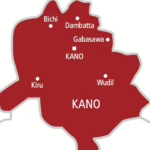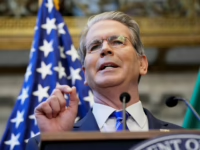Nigeria has officially taken on the leadership role of the Intergovernmental Group of Twenty-Four (G-24), committing to elevate the perspectives of nigeria-china-scholars-advocate-inclusive-governance/” title=”… and China Scholars Unite to Champion Inclusive Global Governance”>developing countries and advocate for comprehensive reforms in the global economic system.
According to an announcement by the Central Bank of Nigeria (CBN) on its official X (formerly Twitter) account, Nigeria will assume the chairmanship of this influential coalition starting November 1, 2025.
Established in 1971, the G-24 serves as a collective forum for developing nations to harmonize their stances on international financial and development matters, ensuring their unified interests are effectively voiced in worldwide economic policymaking.
Representing Nigeria, CBN Governor Olayemi Cardoso, speaking on behalf of Finance Minister and Coordinating Minister of the Economy Wale Edun, reiterated the country’s dedication to fostering stronger cooperation among G-24 members.
“Our priority is to maintain progress in critical areas that impact our members,” Cardoso emphasized. “We are eager to collaborate closely with all members to promote our common goals of inclusive development, fairness, and global economic stability.”
He further highlighted that Nigeria’s tenure will focus on enhancing the G-24’s role as a powerful voice advocating for the shared interests of emerging and developing economies worldwide.
This appointment aligns with Nigeria’s ongoing efforts to establish itself as a key proponent of economic inclusivity and reform within the framework of international financial governance.
In 2024, the Nigerian government urged for increased investments and stronger trade alliances among G-24 countries. At that time, Minister Wale Edun emphasized Nigeria’s significant capacity to attract foreign capital in sectors such as manufacturing, agriculture, and energy.
Edun also pointed out Nigeria’s agricultural strength, noting that the nation boasts one of the largest tracts of cultivable land globally, second only to Brazil. This resource positions Nigeria to shift from being a net food importer to becoming a major exporter on the world stage.





















